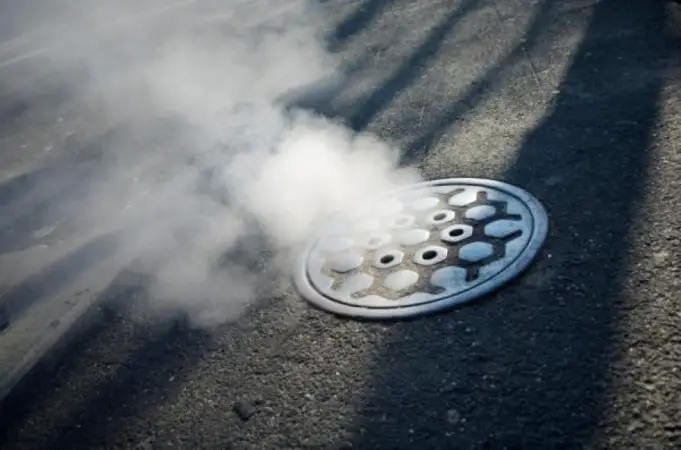Most people take their water and sewer lines for granted. These pipes carry our waste, so we don’t have to deal with it. But as human waste decomposes, it sets off some noxious gases that can really harm your health or even lead to death.
Sewer gas is a serious concern for people who work in sanitation or farm waste facilities. While you’re not likely to be exposed to sewer gas in your home or workplace, it’s not an impossible scenario.
Methane makes up most of what we call sewer gas, but it also contains ammonia, carbon dioxide, hydrogen sulfide, sulfur dioxide and nitrogen oxides. Exposure to sewer gases can cause the following four health issues.
1. Oxygen Depletion
Asphyxiation is a real concern with sewer gas. When diffused into a home’s air, it displaces oxygen and gradually starts to suffocate everyone inside. Oxygen deficiency can cause:
- Dizziness
- Nausea
- Loss of consciousness
- Headache
If oxygen levels fall below 12%, death will follow quickly and without any warning.
2. Hydrogen Sulfide Poisoning
Highly explosive and extremely toxic, hydrogen sulfide is just one component of sewer gas. Exposure can impair several of the body’s systems, including the nervous system. Hydrogen sulfide has a very distinct smell that most people compare to rotting eggs.
The odor is so potent that it can be smelled by the human nose at just 0.47 parts per billion (ppb). At 10 parts per million (ppm), hydrogen sulfide can cause eye irritation, and at 50 ppm, it can cause eye damage. Exposure can also cause:
- Nausea
- Headaches
- Drowsiness
- Anxiety
At higher levels of 700-1,000 ppm, hydrogen sulfide will almost certainly cause death.
3. Fire or Explosion
Both hydrogen sulfide and methane are highly explosive, and make up a large percentage of sewer gas. Vapors from these compounds can lead to a fiery explosion.
4. Illness and Discomfort
Even at low levels, sewer gas can cause physical and mental illness. Some people may experience:
- Increased heart rate
- Headaches
- Loss of muscle coordination
- Memory loss
- Irritability
- Loss of appetite
There’s also the risk of inhaling bacteria, fungus or viruses that may be in raw sewage. Most of these pathogens will die when exposed to the atmosphere, but may infect people who inhale the gas.
What Causes Sewer Gas?
Sewer gas is caused by issues in the sewer line. Most of these plumbing issues can be detected through a sewer camera inspection or by inspecting key areas of the property or home that may show signs of sewer line problems. Issues that can enable sewer gases to flow back into a building include:
- Cracks in the drain line or vent pipes. Cracks in the drain line can cause a water leak and are usually easy to spot. Cracks in the vent, however, can be more difficult to find and can leak a large amount of sewer gas into a home. Plumbers use special machines to diagnose this problem. These machines create artificial smoke, which are pumped into the drain system. The smoke causes pressure in the system, which forces the “smoke” to exit through any cracks or holes in the pipe.
- Dried-out piping. Sewer gas leaks are normally caused by dried out traps. Infrequent use of showers, toilets and floor drains can allow for rapid evaporation and sewer gases to enter the living space. Dried out piping can be a serious issue when the weather is dry. Floor drains are a common culprit, as they are typically placed in areas that are more likely to dry out, such as workshops and mechanical rooms. Automatic drain-trap primers can be installed to ensure that a small flow of water runs through the drain to keep it from drying out.
- Cracks in the foundation of a building.
- Diffusion derived from a leach field septic system.
- Improperly installed plumbing vents. Vents that are installed too close to windows or air intakes in buildings with HVAC units can be an issue with sewer gas. Wind and air flow around the building can force the gas into the building. Pipe filters can be installed, or homeowners can change the height of the vents to fix the issue.
The good news is that most homeowners won’t have to worry about sewer gas. Still, it’s important to understand the signs and causes so that you can act quickly if there is a sewer gas issue in your home.












